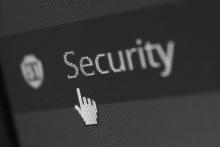Data security
North Macedonia’s New COVID-19 Restrictions Raise Personal Data Fears
Faced with yet another surge in infections, particularly in the capital Skopje and in the town of Tetovo, the government has decided that, starting next Monday, all hospitality venues with a capacity over 30 guests must introduce private security personnel to check guests for vaccination certificates on entry.
AI and cyber security high on Slovenia’s presidency agenda
Luxembourg – Public Administration Minister Boštjan Koritnik attended a session of the EU’s Telecommunications Council in Luxembourg on Friday to present Slovenia’s EU presidency priorities in digitalisation. He said that Slovenia was placing digitalisation, development of artificial intelligence and cyber security high on the agenda.
Global companies have begun to quantify risks arising from cyber attacks (experts)
A culture of online security is very important, it can help us protect ourselves from cyber attacks, a context in which six out of ten global companies maintain to have begun to quantify these risks. This is the conclusion of the debates organized, on Thursday, within one of the panels of the event "Lessons learned from cyber security experts.
CERT-RO's Cimpean: Public-private partnerships needed to fight cybercrime
Privately-run companies must be part of the solution to fight cybercrime, and co-operation between the public and private sectors is needed to combat the phenomenon, Director General of the Romanian National Cyber Security and Incident Response Team (CERT-RO) Dan Cimpean told a specialist conference on Thursday.
Record workload for Information Commissioner in 2020
Ljubljana – The Office of the Information Commissioner received a record number of applications, complaints and queries last year, according to the annual report submitted to the National Assembly.
A total of 565 complaints were received, and the number of requests for opinion rose by almost a third due to high demand for information about spending on public health measures.
Always Click “Accept” on Cookies? See If You Should
France's data protection watchdog CNIL will from Thursday (1 April) begin conducting checks to ensure websites are in compliance with new guidelines on advertising trackers after the deadline it granted expired. EURACTIV France reports.
Turkey promotes indigenous ‘Cyber Security Cluster’: Defense industries head
Turkey has promoted the establishment of a "cyber security cluster," made up of local companies that produce software and hardware, aiming to make indigenous products dominant in the country, head of the defense industries presidency said.
Biometric identity cards coming
Ljubljana – Slovenia will roll out biometric identity cards in line with legislation passed by the National Assembly on Wednesday that implements an EU requirement that all member states should start issuing biometric identity cards by August 2021.
- Read more about Biometric identity cards coming
- Log in to post comments
Bulgarian Cybersecurity Expert: Remote Working Heightens Risk of Hacker Attacks
For the larger part of Bulgarians working from home in time of pandemic is an advantage. It's true that some firms could not switch over to a digital-only business model and keep on working. Fortunately, the larger part of businesses made the necessary transformations quite promptly and managed to adapt to the new situation caused by the coronavirus pandemic.
Top Digital Threats Consumers Will Face in 2021
In 2021, one of the main topics is cybersecurity and the potential digital threats consumers will face this year. The new-and-improved security industry is on the rise and along with it comes challenges that we must combat.
- Read more about Top Digital Threats Consumers Will Face in 2021
- Log in to post comments







